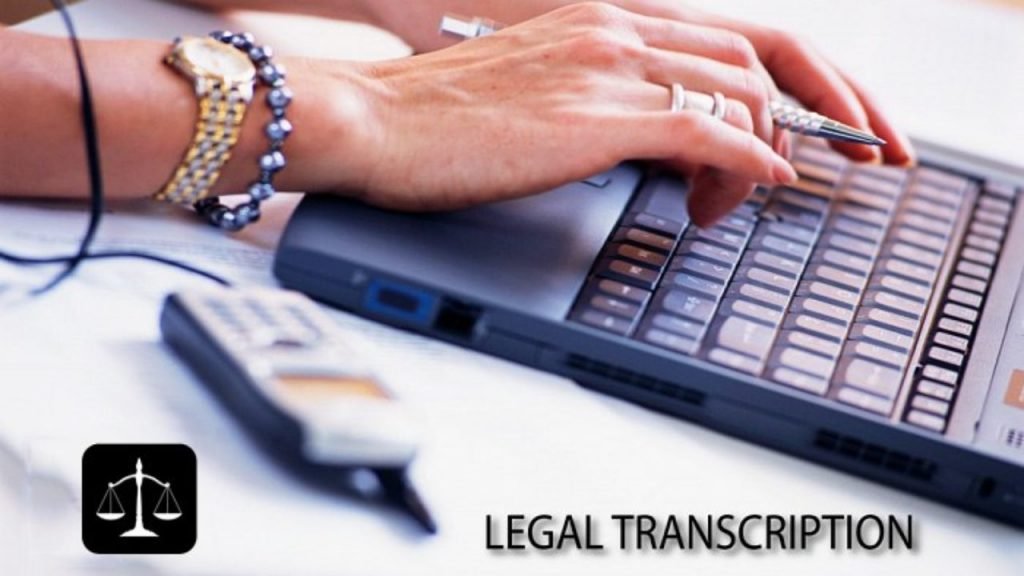Legal transcriptions have become increasingly significant in the legal sector. They provide a valuable service that enhances the efficiency and effectiveness of legal professionals. By converting audio and video recordings of legal proceedings into written documents, legal transcriptionists relieve paralegals, researchers, and attorneys from the laborious task of manually transcribing these recordings. Thanks to the expertise of specialized legal transcriptionists who ensure high accuracy, the resulting documents are easier to read, sort, and scan.
Understanding Legal Transcription
Legal transcriptionists convert audio or video files of legal events into text documents. They meticulously transcribe everything they hear and see, adhering to specific formatting requirements that make it simple for legal professionals to locate necessary information.
Key aspects of legal transcription include:
- Verbatim Transcription: Capturing every word and sound without correcting grammar.
- Background Noises and Non-Verbal Cues: Including all sounds and non-verbal communications.
- Filler Words: Transcribing filler words like “ah,” “uh,” and “um.”
- Stutters and False Starts: Including all speech imperfections.
The industry has grown rapidly, encompassing various services such as transcribing legal correspondence, briefs, client letters, interrogations, court hearings, testimonies, and depositions from multiple recording formats.
Benefits of Legal Transcription
Investing in legal transcription services offers numerous advantages:
- Time Efficiency: Law firms save significant time, allowing them to focus on other critical tasks.
- Cost-Effective: Outsourcing transcription is more economical than hiring in-house staff.
- Accuracy and Speed: Professional transcriptionists ensure fast and precise document delivery.
- Improved Workflow: Legal firms can concentrate on their core functions, improving overall efficiency.
Legal Transcription Process
The process of legal transcription involves several steps:
- Submission: The client sends the audio/video files to the transcription agency, specifying the required formats and deadlines.
- Transcription: The transcriptionist carefully listens to the recordings and types them out, adhering to the required format and maintaining all nuances of speech.
- Review: Other professional reviews and proofreads the document to ensure accuracy.
- Delivery: The final document is delivered to the client in the requested format, either printed or digital. The agency also archives the document for future reference.
Turnaround Times and Rates
Turnaround times for legal transcriptions vary:
- Standard: Typically, ready within 48 to 72 hours.
- Rush Projects: Can be completed in 4 hours to 2 business days at a higher cost.
- Bulk Projects: This may take 1 to 2 weeks.
Rates depend on the complexity of the project and the number of speakers, with standard interviews being the most economical.
Choosing the Right Legal Transcription Service
When selecting a legal transcription service provider, consider the following:
- Accuracy Guarantee: Ensure at least 99% accuracy.
- Turnaround Flexibility: The provider should meet your deadlines, including urgent requests.
- Local Expertise: The company should operate within your jurisdiction to adhere to local legal requirements.
- Language Variety: Availability of transcriptionists proficient in multiple languages.
- Security Standards: High levels of confidentiality and security measures.
- Insurance and Transparency: Clear contracts and insurance coverage for liability protection.
- Reputation: Established and licensed with positive client testimonials.
Services Offered
A comprehensive legal transcription service provider offers a wide range of services, including:
- Court proceedings and transcripts
- Client correspondence
- Interrogations and depositions
- Legal briefs and pleadings
- Meetings and seminar transcriptions
- Telephone and conference calls
Utilizing Legal Transcriptions
Legal transcriptions are essential for:
- Developing trial strategies
- Formulating witness questions
- Planning appeals
- Serving as evidence
- Understanding judicial decisions
Law students also benefit from studying past cases through these transcriptions.
Advantages of Legal Transcriptions
- Detailed Documentation: Transcriptions with timestamps and speaker identifications.
- Support for Evidence: Enhances clarity for jurors and trial participants.
- Efficient Note-Taking: Easier to highlight critical parts and make notes.
- Accessibility: Simplified sharing and storage in various digital formats.
- Aid in Complex Cases: Helps attorneys navigate through conflicting reports.
- Family Accessibility: Enables family members to follow proceedings remotely.
- Appeals Support: Facilitates quicker research and strategy development for appeals.
High-Quality Legal Transcription Services
At Lingua Franca Ltd., we pride ourselves on delivering top-notch legal transcription services. Our expert transcriptionists are native speakers with extensive experience, ensuring high accuracy and quick turnaround times at competitive rates. For professional and reliable legal transcription services, contact us at info@linguafrancaky.com or amaya@linguafrancaky.com.

